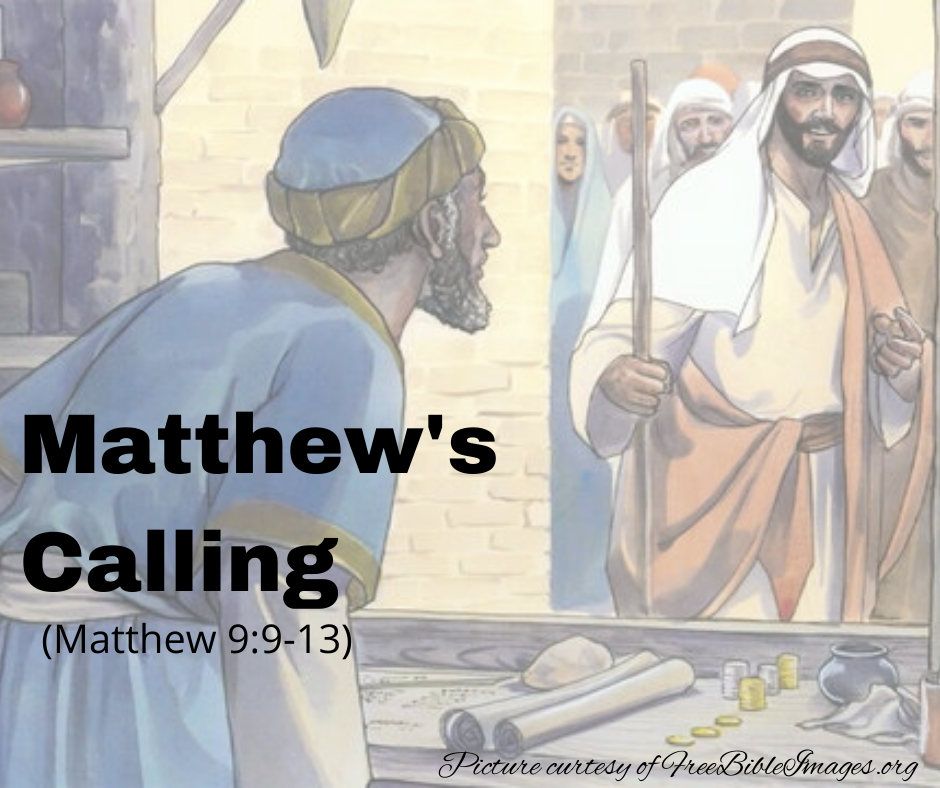Set the table: Take a moment and think of all the things stewing in your mind and heart – and then lay them down. Ask God to clear your mind and to open your heart to hear Him speak.
Create in me a clean heart, God, And renew a steadfast spirit within me.
11 Do not cast me away from Your presence, And do not take Your Holy Spirit from me.
12 Restore to me the joy of Your salvation, And sustain me with a willing spirit.
13 Then I will teach wrongdoers Your ways, And sinners will be converted to You. Psalm 51:10-13 NASB
On the Menu
Beverage: Drink in His Presence.
“I love You, Lord, my strength.”
2 The Lord is my rock and my fortress and my savior,
My God, my rock, in whom I take refuge;
My shield and the horn of my salvation, my stronghold.
3 I call upon the Lord, who is worthy to be praised,
And I am saved from my enemies. Psalm 18:1-3 NASB
Main Course: Study His Word.
Matthew 14:15-21; also found in Mark 6:30-44, Luke 9:10-17, John 6:1-13
Now when Jesus heard about John, He withdrew from there in a boat to a secluded place by Himself; and when the people heard about this, they followed Him on foot from the cities. 14 When He came ashore, He saw a large crowd, and felt compassion for them and healed their sick. 15 Now when it was evening, the disciples came to Him and said, “This place is secluded and the hour is already past to eat; send the crowds away, so that they may go into the villages and buy food for themselves.” 16 But Jesus said to them, “They do not need to go; you give them something to eat!” 17 They said to Him, “We have nothing here except five loaves and two fish.” 18 And He said, “Bring them here to Me.” 19 And ordering the crowds to sit down on the grass, He took the five loaves and the two fish, and looked up toward heaven. He blessed the food and breaking the loaves, He gave them to the disciples, and the disciples gave them to the crowds. 20 And they all ate and were satisfied, and they picked up what was left over of the broken pieces: twelve full baskets. 21 There were about five thousand men who ate, besides women and children. Matthew 14:13-21 NASB
Main Course 1 – Remain in Christ
This is the only miracle that is recorded in all four Gospels. Although the verses prior to each account is just a little different, we can gather that the disciples had just returned from their journeys and Jesus had called them aside to rest. This was also just after Jesus had heard of the death of John the Baptist. So, both Jesus and all the disciples were probably physically and emotionally weary, needing rest and the comforting company of each other.
Jesus is well aware that we are but human beings who become weary. Even when we are busy doing the Father’s work, we can become tired. But there are times, even when we need rest, that we simply do not have the luxury of pulling away from our responsibilities. What are we to do then?
Remain in the presence of Jesus.
Even though Jesus had attempted to pull the disciples aside, the crowd followed. When Jesus saw the crowd, He had compassion on them and began to minister to them. He did not send them away. The disciples could have decided to go on home and rest and let Jesus take care of the crowd, but they remained with Him and was put back to work. By staying with Jesus, they were allowed to be a part of the great miracle about to happen.
Come to Me, all who are weary and burdened, and I will give you rest. 29 Take My yoke upon you and learn from Me, for I am gentle and humble in heart, and you will find rest for your souls. Matthew 11:28-29 NASB
This verse is not saying we will not have to “work” for Christ. A yoke was put on animals to prepare them for work, not to graze in a pasture. So, when we take on the yoke of Christ, He is saying He will empower and equip us to do whatever He places before us to do, even when we are weary.
Let’s not become discouraged in doing good, for in due time we will reap, if we do not become weary. 10 So then, while we have opportunity, let’s do good to all people, and especially to those who are of the household of the faith. Galatians 6:9-10 NASB
Yes, we may grow tired, but at the same time, we will have a rest for our souls that no amount of “down-time” can provide. We may even get to experience a miracle when we remain in the presence of Christ!
Main Course 2 – The Compassionate Shepherd
When Jesus saw the crowd, He had compassion on them. He spent time talking with them, teaching them, and healing them. The hour was getting late and they were needing food. Although Jesus came to seek and to save those who were lost, He also had compassion on them for their physical needs. Much like the verse in James, if you speak to someone about their spiritual needs when their physical needs are most pressing in the moment, you do them an injustice.
14 What use is it, my brothers and sisters, if someone says he has faith, but he has no works? Can that faith save him? 15 If a brother or sister is without clothing and in need of daily food, 16 and one of you says to them, “Go in peace, be warmed and be filled,” yet you do not give them what is necessary for their body, what use is that? 17 In the same way, faith also, if it has no works, is dead, being by itself. James 2:14-17 NASB
Works do not save us. However, the end of Galatians 5:6 says, “the only thing that counts is faith expressing itself through love.” When we have the love of Christ within us, we will naturally perform deeds that clearly show the love of Christ, which may include providing for the physical needs of others just as Jesus did.
When Jesus was preparing to feed the multitude, He told the disciples to direct them to sit down in the grass. This brings to mind the Psalm of the Great Shepherd.
The Lord is my shepherd,
I will not be in need.
2 He lets me lie down in green pastures;
He leads me beside quiet waters.
3 He restores my soul;
He guides me in the paths of righteousness
For the sake of His name. Psalm 23:1-3 NASB
A couple other verses that speak of God’s compassion are these:
Then the Lord passed by in front of him and proclaimed, “The Lord, the Lord God, compassionate and merciful, slow to anger, and abounding in faithfulness and truth; Exodus 34:6 NASB
Remember, Lord, Your compassion and Your faithfulness, For they have been from of old. Psalm 25:6 NASB
So many other places throughout the Old Testament and in the Psalms, God is described, even in His own words, as a compassionate God. It stands to reason then that Jesus, God in the flesh, felt so much compassion on people. He never sent anyone away. And He doesn’t send anyone away today. He lives to make intercession for us, His children, and patiently calls everyone to receive Him as their Savior.
Jesus, on the other hand, because He continues forever, holds His priesthood permanently. 25 Therefore He is also able to save forever those who come to God through Him, since He always lives to make intercession for them. Hebrews 7:24-25 NASB
The Lord is not slow about His promise, as some count slowness, but is patient toward you, not willing for any to perish, but for all to come to repentance. 2 Peter 3:9 NASB
Just as Jesus showed compassion to others, we are to show compassion to those around us.
Main Course 3 – The Great Prophet
Most of the time when we speak of Christ, we refer to Him as the Promised Messiah. But He was also the great Prophet sent by God.
I will raise up for them a prophet from among their countrymen like you, and I will put My words in his mouth, and he shall speak to them everything that I command him. Deuteronomy 18:18
14 Therefore when the people saw the sign which He had performed, they said, “This is truly the Prophet who is to come into the world.” John 6”14 NASB
And just as the Old Testament is full of examples and types of Christ (people, events, things that foreshadowed Christ, like Adam and Moses), the prophet Elisha also performed a similar miracle as this one performed by Jesus.
Now a man came from Baal-shalishah, and brought the man of God bread of the first fruits, twenty loaves of barley and fresh grain in his sack. And Elisha said, “Give them to the people that they may eat.” 43 But his attendant said, “How am I to serve this to a hundred men?” Nevertheless he said, “Give them to the people that they may eat, for this is what the Lord says: ‘They shall eat and have some left over.’” 44 So he served it to them, and they ate and had some left over, in accordance with the word of the Lord. 2 Kings 4:42-44 NASB
The King James Version interprets the fresh grain as ears of corn.
And there came a man from Baalshalisha, and brought the man of God bread of the firstfruits, twenty loaves of barley, and full ears of corn in the husk thereof. And he said, Give unto the people, that they may eat. 2 Kings 4:42 KJV
The Israelites esteemed Moses and the prophets. Under the leadership of Moses, God fed the multitude of people with manna. And in this instance from the life of Elisha, he fed a hundred men with very little. By feeding the multitude of people, Jesus was identifying Himself as a leader and Prophet sent by God to be among the people. But Jesus was even greater than Moses and Elisha. He was the complete fulfillment of all the prophecies foretold in the Old Testament. He was Prophet, Priest and King!
Main Course 4 – The Ultimate Provider
The disciples came to Jesus and urged Him to send the crowd away so that they could go into neighboring towns to find food. When Jesus told them that they should feed the multitude, they said they had very little food and even said it would take more money than they had to go buy the food themselves. In John 6:6 we are told Jesus was testing Philip when He questioned how they should provide for the people. Jesus already knew what He was going to do.
God already knows what’s ahead for each person and already has a plan for us. We are told this in that very familiar verse from Jeremiah.
“For I know the plans I have for you,” declares the Lord, “plans to prosper you and not to harm you, plans to give you hope and a future.” Jeremiah 29:11 NIV
Once again, we are reminded how occurrences in the Old Testament reveals New Testament truths. This miracle is similar to when the Children of Israel started asking for meat in the wilderness. Moses began to get angry with the Lord, tired of hearing the complaining of the people. When the Lord told Moses He would provide food for the people, Moses gave this reply.
But Moses said, “The people, among whom I am included, are six hundred thousand on foot! Yet You have said, ‘I will give them meat, so that they may eat for a whole month.’ 22 Are flocks and herds to be slaughtered for them, so that it will be sufficient for them? Or are all the fish of the sea to be caught for them, so that it will be sufficient for them?” 23 Then the Lord said to Moses, “Is the Lord’s power too little? Now you shall see whether My word will come true for you or not.” Numbers 11:21-23 NASB
The disciples, just like Moses, were only focused on the things right in front of them instead of the Person speaking to them. How often do we focus on our circumstances instead of our Lord? How much trust and faith do we put into ourselves and our material possessions instead of in God? Just as the Lord said to Moses, do we think His power is too little?
When we are faced with a need, we need to remember that all we have comes from God. He knows exactly what we need and we can trust the Lord to give it to us. And He doesn’t just give a little, He blesses us from His abundance.
And my God will supply all your needs according to His riches in glory in Christ Jesus. Philippians 4:19 NASB
So Jesus took the bread and fish given to Him and fed all of the people. Not only was there enough for all of the people to be filled, but there were leftovers. I’m sure the people were grateful to Jesus for filling their need. But we later learn that Jesus knew many were following after Him just so He could meet their physical needs instead of their spiritual needs.
Jesus answered them and said, “Truly, truly, I say to you, you seek Me, not because you saw signs, but because you ate some of the loaves and were filled.” John 6:26 NASB
Lest we look down on those folks, we ought to ask ourselves this question. How much do we long for the provision more than the Provider? How often do we follow after things in this world instead of laying up our treasure in heaven? Would we continue to seek after the Lord even if He never gave us another thing?
One more point I want to bring out about God’s provisions. I’ve often wondered about the significance of the writers of the Gospels pointing out there were 12 baskets of leftovers. Some have said the number 12 represents the 12 tribes of Israel, and in effect is saying that God has enough to supply all His people. And He does. He can supply everyone’s needs, and still have more to give.
This thought came to me as I was studying these passages. God sent His Son to this earth to be sacrificed in our place. After the resurrection and ascension of Christ, He then sent the Holy Spirit to live within us once we have believed, repented and received Christ as our Savior. So, He has provided all that we need spiritually to meet our needs each day, just as Jesus met the needs of all those people that day. But wait, there’s more!
Because God had provided something better for us, so that apart from us they would not be made perfect. Hebrews 11:40 NASB
Not only has God provided all we need to live a righteous life here and now, we have an eternity with Him waiting for us!
In My Father’s house are many rooms; if that were not so, I would have told you, because I am going there to prepare a place for you. 3 And if I go and prepare a place for you, I am coming again and will take you to Myself, so that where I am, there you also will be. John 14:2-3 NASB
God provided us with the Bread of Life to enable us to walk daily with Him in this world. But what He provided cannot all be fully consumed or realized now. We can enjoy the fulness of His presence now, but we are limited by our human bodies. The “fragments in the baskets” is a seat with our name on it reserved for us in the heavenlies. We can only comprehend but so much here and now, but one day we will fully understand and experience all He has prepared for us.
For now we see in a mirror dimly, but then face to face; now I know in part, but then I will know fully, just as I also have been fully known. 1 Corinthians 13:12 NASB
Worship Him for providing for us daily, both physically and spiritually, but look forward to one day enjoying all that He has prepared that we cannot hold now!
Our take-aways from this lesson today.
- We may be weary in body and soul, but staying close to Christ will provide our souls with a rest that will refresh us even when we can’t rest physically. And we just might witness a miracle as we stay close to Him!
- Jesus exhibited great compassion as He ministered to others. Using Him as the ultimate example, we are to show compassion to others.
- Jesus fulfilled all of the prophecies in the Bible. We can trust and believe He is the Promised Messiah!
- Jesus is our great Provider. He provides all we need, both physically and spiritually. And just as He has blessed us abundantly in this life, we have even more to look forward to in eternity! I’m looking forward to experiencing the leftovers!
Dessert:
Spend a few moments in prayer




